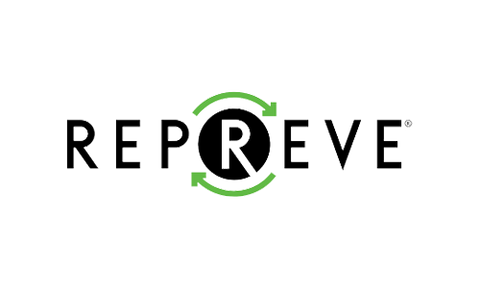What do clothes have to do with plastic?
The fashion industry plays a significant role in the production of plastic. 69% of all clothing contains synthetic fibers such as polyester in whole or in part. It is estimated that washing these clothes contributes up to 35% of the microplastics in our oceans. Most of the clothes produced are individually packed in plastic bags, so-called polybags, during production, which unnecessarily uses up the valuable resource of crude oil. In addition, fast fashion means that more and more clothes are being bought and disposed of again after a short time. Only 1% of these clothes is recycled. The rest is often incinerated and thus causes further greenhouse gas emissions in our air.
Plastic-free sports fashion is not possible? Yes it is!

For over 20 years, we have been producing MANDALA sportswear from fabrics such as organic cotton or Tencel™. Both materials are made from renewable natural raw materials and therefore have the smallest possible climate footprint. Over the years, we have constantly added new innovations to our range and are always trying to use even more sustainable fabrics for our sports wear. Our range now includes fabrics such as modal made from beech wood and vegan silk from cotton remnants.
Careful use of our resources
 Plastic is made from crude oil. As crude oil is a finite resource, we should use it as sparingly as possible. That's why we rely on the following for our collection recycled polyesterwhich is made from PET bottles. For this we rely on Repreve, the global market leader for recycled polyester.
Plastic is made from crude oil. As crude oil is a finite resource, we should use it as sparingly as possible. That's why we rely on the following for our collection recycled polyesterwhich is made from PET bottles. For this we rely on Repreve, the global market leader for recycled polyester.
The plastic bottles are collected on beaches, among other places, so not only are we cleaning up plastic waste, we are also not wasting valuable resources. With our bras, tops and leggings made from recycled polyester, we have already been able to recycle over 1.2 million bottles to create a beautiful, durable and comfortable garment. We also don't use polybags and instead pack in bags made from FSC-certified paper. You can find out more about our sustainability measures here.
How can you become active?
Each and every one of us can help to ensure that less plastic is produced, used and disposed of in the environment. Only if we stick together as a society can we stop climate change. Here are a few ideas that you can easily implement in your everyday life:
- Buy outfits made from natural materials
- Avoid fast fashion and wear your clothes for as long as possible
- Don't buy disposable plastic products and switch to sustainable alternatives instead
- Recycle plastic
- Make others aware of the problem of (micro)plastic
More on the topic and further suggestions for action can be found on the international Earth Day website.




 Plastic is made from crude oil. As crude oil is a finite resource, we should use it as sparingly as possible. That's why we rely on the following for our collection
Plastic is made from crude oil. As crude oil is a finite resource, we should use it as sparingly as possible. That's why we rely on the following for our collection 
























